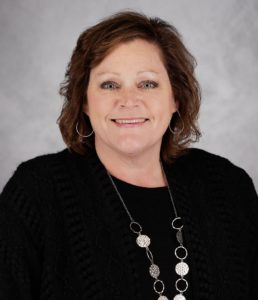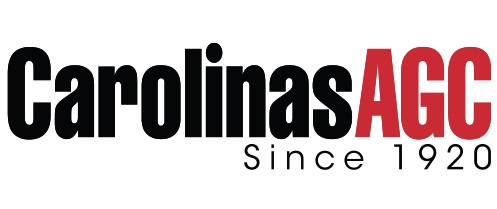
2021-2022 South Carolina Legislative Wrap-Up from CAGC
The SC Legislature adjourned Sine Die on May 12, 2022, completing the second year of the 124th Legislative Session. There were close to 5,000 bills and resolutions filed over the two-year session and 272 of them were signed into law by Gov. Henry McMaster. The work done by CAGC’s SC Lobbyist will benefit members and the industry for years to come, be it tax cuts, tax incentives, road funding, or workforce scholarships.
“The support of construction industry, by the members of the SC General Assembly, continues to be strong and will positively impact the industry as a whole,” said Leslie Clark, Vice President Operations South Carolina, Government Relations & Divisions Director.

Below are the highlights of the CAGC’s legislative successes:
2021 Bills Signed into Law:
Abandoned Buildings Revitalization: The Abandoned Buildings Revitalization amended current law to extend expiring tax credits. The law allows for an incentive for the rehabilitation, renovation, and redevelopment of abandoned buildings located in South Carolina. These tax credits which were to expire December 31, 2021, were extended to December 31, 2025.
COVID Liability Legislation: This legislation provides necessary, targeted, and temporary liability relief for businesses, healthcare providers, educational institutions, and other entities who have followed and continue to follow public health guidance during the pandemic. Passing this legislation was a top priority for Carolinas AGC and we applaud the legislature for passing, and the Governor for signing into law, the same protections that most of our surrounding states have already passed.
BPBPSC Funding Approved: The 2021 state’s appropriations bill included $642,000 for Be Pro Be Proud SC (BPBPSC). This funding was requested by Carolinas AGC and our BPBPSC working group to continue funding the skilled trades mobile workshop. This Workforce Workshop provides hands-on experience with skilled professions while showing the jobs in depth to a live audience. It is tailored to middle and high school students and has already proven to be extremely successful.
Significant Funding Approved for the Construction Industry: In addition to BPBPSC funding, the state’s appropriations bill also includes significant funding for SCDOT, rural schools, technical college and higher education building repair and maintenance, funding for the SC Port, and money for state reserves. Below are the highlights:
• $102.95 million in one-time Funding for CTC’s/SCDOT. Specifically:
o $50 million for County Transportation Committee’s (CTC’s)
o $8 million litter pick-up.
o $850,000 for Five Points Road Funding.
o $1 million of planning money for an interchange on I-85.
o $40 million for Rest Areas Renovations
o $1.6 million for Palmetto Trail Highway 301 Pedestrian Bridge
o $500,000 for Historic T-Bridge Repairs
o $500,000 for Forest Lake Place Bridge
o $500,000 for City of Forest Acres Bridge Replacement
- $100 million for renovations to rural schools.
- $200 million for critical maintenance on college campuses.
- $163 million for building maintenance on 16 Technical College campuses throughout the state.
- $640 million place in reserves for future needs/crisis.
- $543 million to repair older college buildings in the state (* in Capital Reserve Fund, H. 4101)
2022 Bills Signed into Law:
Budget Includes Billion Dollar Investment in Roads: The General Assembly passed a budget that invested $1 billion in roads by approving $120 million a year for the next five years to match the federal infrastructure funding South Carolina will receive for roads. In addition, $250 million for one-time funding for CTC Acceleration, and $133.6 million in one-time rural interstate funding. The recurring dollars will be used to advance to the state’s current 10-year plan and for accelerating CTC projects. All this funding was in addition to the $453 million in American Rescue Plan Appropriations to accelerate interstate projects such as 1-26 and 1-95.
Two Billion in Income Tax Cuts/Rebates: The General Assembly agreed to an income tax cut, reducing the 7% top rate to 6.5% and providing a phased-in reduction to 6% after that, including safeguards to trigger reductions. Each year, the top income tax rate will go down a tenth of a percent until it reaches 6%. However, if the state does not grow at least 5% each year, those cuts will not happen. This will result in South Carolina having three effective tax brackets: 6%, 3%, and 0%. Also included is the manufacturing property tax reduction, which reduces the 9% rate to 6%. These tax cuts will cost the state $1 billion dollars.
In addition, both bodies approved $1 billion in rebates directly to taxpayers based on actual taxes paid. These payments are expected to be issued by November or December.
Additional Budget Successes: The approved budget also includes the following, which Carolinas AGC fully supported:
- State Ports Authority funding to build the Navy Intermodal/Container Facility: $350 million
- Be Pro Be Proud Mobile Workshop: $642,500.00
- Workforce Scholarships to train in high demand careers including construction/CDL: $39 million
Local Road Use Fees Legislation Becomes Law: Gov. McMaster signed into legislation providing clarity to local road use fees across the state. The enactment of the bill should end all uncertainty since the Supreme Court ruled Greenville’s local road use and telecommunications fees invalid last year. Specifically, the law codifies the elements for local fees established in Brown v. Horry County (1992) and removes the requirement that the fee benefits the payer differently from the general public. It also includes provisions to ensure counties that immediately repealed fees and increased taxes do not automatically re-impose fees.
ARPA Funding Bill Enacted: The legislature approved the use of American Rescue Plans Appropriations (ARPA) in South Carolina for the following projects:
- $453.5 million for SCDOT to advance projects
- $900 million to the Rural Infrastructure Authority for water and sewer
- $400 million to the Office of Regulatory Staff for broadband
- $100 million to the Office of Resilience
- $8 million to the Department of Administration
- $107 million for construction of new lab at DHEC.
Voluntary Contributions by GC’s to CSM Enacted: This is legislation that would allow an applicant for a new, reinstatement, or renewal contractor’s license the opportunity to voluntarily contribute any amount beyond their license fee to an accredited public institution of higher learning offering courses in building science or civil engineering. The applicant may designate a specific accredited institution (Clemson, University of South Carolina, The Citadel, or SC State University) to receive the contribution. Undesignated contributions will be divided among the four institutions. Funds can be used to provide or enhance programs related to building science or civil engineering, which shall include, but is not limited to, scholarships, fellowships, research, faculty development, and continuing education programs.
Governor Signs SCWINS Legislation: The General Assembly approved legislation to establish the South Carolina Workforce Industry Needs Scholarship (SCWINS) for students attending a two-year technical college. The bill spells out that a student who is attending a two-year public technical college, who is majoring in a critical workforce area program, as defined and recommended by the State Board for Technical and Comprehensive Education (SBTCE) and ratified by the South Carolina Coordinating Council for Workforce Development, and who is receiving a Lottery Tuition Assistance Program Scholarship (LTAP) for the current school year, shall receive an additional South Carolina Workforce Industry Needs Scholarship (SC WINS).
Workforce Council Legislation Signed into Law: The General Assembly enacted legislation that amends the makeup of the Coordinating Council for Workforce Development by allowing designees to serve for some of the of the board members. The bill also deleted the appointment of a representative from the business community appointed by the State Chamber of Commerce and instead calls for two representatives from the business community who are appointed by the Governor and who have professional expertise in economic development and workforce issues. Additionally, the Council must facilitate and coordinate the development of a unified, statewide workforce plan that utilizes data and analysis to identify statewide workforce priorities and create measurable, time-sensitive metrics in which all workforce pipeline stakeholders including, but not limited to, education and workforce boards, councils, and partner representatives, participate.
BCC Members Required to Live in SC: The Governor signed into law legislation that addresses the membership of the South Carolina Building Codes Council. The law directs the South Carolina Chapter of the American Institute of Architects to provide a list of qualified candidates to the Governor to fill the Licensed Architect spot on the Building Codes Council. Currently, Carolinas AGC, the South Carolina Council of Engineering and Surveying Societies, the Home Builders Association of South Carolina, and the Manufactured Housing Institute of South Carolina are required to provide a list of qualified candidates to the Governor to fill the respective industry positions on the Council. A licensed Architect serves on the Council, but the law was silent on who would assist the Governor in finding a qualified candidate. The bill was amended to require that each association must provide candidates for consideration who are residents of South Carolina.
About Carolinas AGC (CAGC)
Carolinas AGC (CAGC) is a construction trade association made up of contractors and construction-related firms that perform work in North Carolina and South Carolina. CAGC is a chapter of the AGC of America (AGC) and the American Road & Transportation Builders Association (ARTBA). Our members are both small and large general contractors, specialty contractors, material/equipment suppliers, and service providers.






